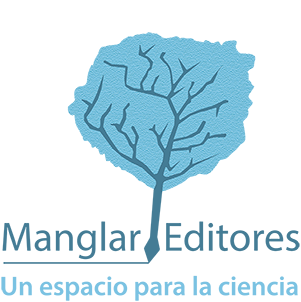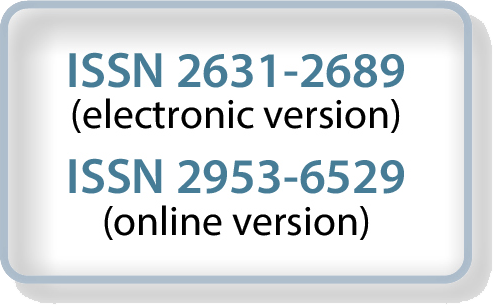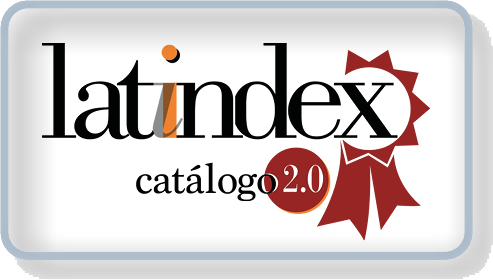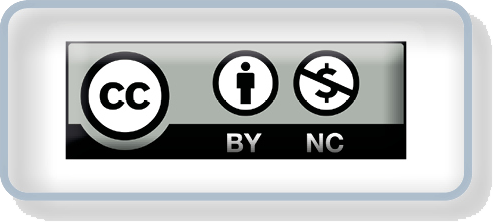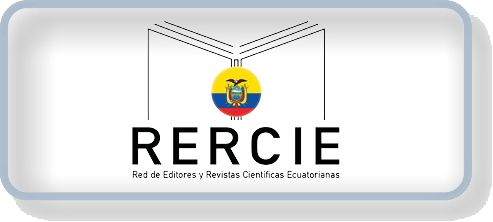University Educational and Research Strategies in the Third Mission for Achieving the Sustainable Development Goals
DOI:
https://doi.org/10.64736/ueplc.2025.v8.n1.4Keywords:
universities, Sustainable development, higher education, environmental education, gender equality, researchAbstract
This case study examines how the Metropolitan University of Ecuador (UMET, Guayaquil campus) has advanced in the institutionalization of the Third Mission by aligning community projects with SDGs 3, 4, 5, 11, and 12. Using a descriptive-analytical design, the study combined documentary analysis of six projects (sexual and reproductive health, gender equality, values education, and recycling) with semi-structured interviews conducted with faculty members experienced in community engagement. The results highlight the active participation of students and faculty, the articulation of outreach with teaching and research, and the establishment of partnerships with schools, local governments, and organizations. Immediate outcomes included increased knowledge of sexual health, women’s empowerment and social reintegration, improvements in school coexistence, and behavioral changes in waste management. At the same time, limitations were observed regarding the long-term evaluation of social impact, the standardization of indicators, and the full curricular integration of community engagement, alongside some fragmentation across initiatives. The discussion places these findings within the international debate on universities and sustainability, emphasizing that relevance and legitimacy are reinforced when clear institutional policies, monitoring systems, and alignment with national public policies are in place. The study concludes that the Third Mission can function as a driver of social innovation and context-based professional training; it recommends strengthening governance, embedding outreach within the curriculum, and developing longitudinal metrics to assess community transformations.
Downloads
References
Aarrevaara, T., Finkelstein, M., Jones, G. A., & Jung, J. (Eds.). (2021). Universities in the Knowledge Society: The Nexus of National Systems of Innovation and Higher Education. Springer. https://doi.org/10.1007/978-3-030-76579-8
Abo-Khalil A. G. (2024). Integrating sustainability into higher education challenges and opportunities for universities worldwide. Heliyon, 10(9), e29946. https://doi.org/10.1016/j.heliyon.2024.e29946
Adib, H. (2024, July). Experiential learning in higher education: Assessing the role of business simulations in shaping student attitudes towards sustainability. The International Journal of Management Education, 22(2), 100968. https://doi.org/10.1016/j.ijme.2024.100968
Aguirre, P., Hidalgo, L., & Pérez, J. (2023). Sustainability in higher education in Ecuador—Universidad Técnica del Norte (UTN) case study. International Journal of Sustainability in Higher Education, 24(5), 1136–1160. https://doi.org/10.1108/IJSHE-07-2021-0268
Al-Barakat, A., AlAli, R., Alotaibi, S., Alrashood, J., Abdullatif, A., & Zaher, A. (2025). Science Education as a Pathway to Sustainable Awareness: Teachers’ Perceptions on Fostering Understanding of Humans and the Environment: A Qualitative Study. Sustainability, 17(15), 7136. https://doi.org/10.3390/su17157136
Aleixo, A. M., Leal, S., & Azeiteiro, U. M. (2018, January). Conceptualization of sustainable higher education institutions, roles, barriers, and challenges for sustainability: An exploratory study in Portugal. Journal of Cleaner Production, 172, 1664–1673. https://doi.org/10.1016/j.jclepro.2016.11.010
Benneworth, P., & Jongbloed, B. (2010). Who matters to universities? A stakeholder perspective on humanities, arts and social sciences valorisation. Higher Education, 59(5), 567–588. https://doi.org/10.1007/s10734-009-9265-2
Bespalyy, S., Alnazarova, G., Scalcione, V. N., Vitliemov, P., Sichinava, A., Petrenko, A., & Kaptsov, A. (2024). Sustainable development awareness and integration in higher education: A comparative analysis of universities in Central Asia, South Caucasus and the EU. Discover Sustainability, 5, 346. https://doi.org/10.1007/s43621-024-00526-6
Bolstad, T., Verhulst, E., & Henriksen, R. B. (2025). Educators’ perspective on integrating sustainability in higher engineering education: a case study within an electronic engineering study programme. European Journal of Engineering Education, 1–20. https://doi.org/10.1080/03043797.2025.2486192
Bowen, G. A. (2009). Document analysis as a qualitative research method. Qualitative Research Journal, 9(2), 27–40. https://doi.org/10.3316/QRJ0902027
Budihardjo, M. A., Ramadan, B. S., Putri, S. A., Wahyuningrum, I. F. S., & Muhammad, F. I. (2021). Towards Sustainability in Higher-Education Institutions: Analysis of Contributing Factors and Appropriate Strategies. Sustainability, 13(12), 6562. https://doi.org/10.3390/su13126562
Bustamante-Mora, A., Diéguez-Rebolledo, M., Hormazábal, Y., Valdés, Y., & Vidal, E. (2024). Policies, Projects, and Initiatives for Sustainable Higher Education with Gender Equity: Literature Review and Case Study—Universidad de La Frontera. Sustainability, 16(12), 5038. https://doi.org/10.3390/su16125038
Compagnucci, L., & Spigarelli, F. (2020, December). The Third Mission of the university: A systematic literature review on potentials and constraints. Technological Forecasting and Social Change, 161, 120284. https://doi.org/10.1016/j.techfore.2020.120284
Condron, C., Power, M., Mathew, M., Lucey, S., Henn, P., Dean, T., Kirrane Scott, M., Eppich, W., & Lucey, S. M. (2025). Gender equality training for students in higher education: Scoping review. JMIR Medical Education, 11, e60061. https://doi.org/10.2196/60061
Findler, F., Schönherr, N., Lozano, R., Reider, D., & Martinuzzi, A. (2019). The impacts of higher education institutions on sustainable development: A review and conceptualization. International Journal of Sustainability in Higher Education, 20(1), 23–38. https://doi.org/10.1108/IJSHE-07-2017-0114
Flick, U. (2018). An introduction to qualitative research (6th ed.). SAGE. https://tinyurl.com/yw272sah
Flyvbjerg, B. (2006, April). Five misunderstandings about case-study research. Qualitative Inquiry, 12(2), 219–245. https://doi.org/10.1177/1077800405284363
Fuchs, P. G., Finatto, C. P., Birch, R. S., de Aguiar Dutra, A. R., & de Andrade Guerra, J. B. S. O. (2023). Sustainable Development Goals (SDGs) in Latin-American Universities. Sustainability, 15(11), 8556. https://doi.org/10.3390/su15118556
Gerring, J. (2016). Case study research: Principles and practices (2nd ed.). Cambridge University Press. https://doi.org/10.1017/9781316848593
Hazelkorn, E., & Gibson, A. (2019). Public goods and public policy: What is public good, and who and what decides? Higher Education, 271, 257–271. https://doi.org/10.1007/s10734-018-0341-3
Kohl, K., Hopkins, C., Barth, M., Michelsen, G., Dlouhá, J., Razak, D. A., Sanusi, Z. A. B., & Toman, I. (2022). A whole-institution approach towards sustainability: A crucial aspect of higher education’s individual and collective engagement with the SDGs and beyond. International Journal of Sustainability in Higher Education, 23(2), 218–236. https://doi.org/10.1108/IJSHE-10-2020-0398
Kvale, S., & Brinkmann, S. (2015). InterViews: Learning the craft of qualitative research interviewing (3rd ed.). SAGE.
Leal Filho, W., Amaro, N., Avila, L. V., Brandli, L., Damke, L. I., Vasconcelos, C. R. P., Hernandez-Diaz, P. M., Frankenberger, F., Fritzen, B., Velazquez, L., & Salvia, A. (2021, September). Mapping sustainability initiatives in higher education institutions in Latin America. Journal of Cleaner Production, 315, 128093. https://doi.org/10.1016/j.jclepro.2021.128093
Macías-Prada, J. F., Silva, Y., & Zapata, Á. M. (2024). The role of universities in Latin American social entrepreneurship ecosystems: a gender perspective. International Journal of Gender and Entrepreneurship, 16(1), 47–68. https://doi.org/10.1108/IJGE-03-2023-0081
Maxwell, J. A. (2013). Qualitative research design: An interactive approach (3rd ed.). SAGE. https://tinyurl.com/yfshpt35
Merriam, S. B., & Tisdell, E. J. (2016). Qualitative research: A guide to design and implementation (4th ed.). Jossey-Bass. https://tinyurl.com/25brms48
Miles, M. B., Huberman, A. M., & Saldaña, J. (2014). Qualitative data analysis: A methods sourcebook (3rd ed.). SAGE. https://tinyurl.com/yc3bfu3v
Nansen, C. (2024). Active Learning, Living Laboratories, Student Empowerment, and Urban Sustainability. Sustainability, 16(10), 3902. https://doi.org/10.3390/su16103902
Pinheiro, R., Langa, P. V., & Pausits, A. (2015). The institutionalization of universities’ third mission: introduction to the special issue. European Journal of Higher Education, 5(3), 227–232. https://doi.org/10.1080/21568235.2015.1044551
Pramono, M., Faisal, F., & Harto, P. (2023). The determinants of higher education institutions’ (HEIs) sustainability reporting. Cogent Business & Management, 10(3). https://doi.org/10.1080/23311975.2023.2286668
Presidencia de la República del Ecuador. (2010, 12 de octubre). Ley Orgánica de Educación Superior, LOES. Registro Oficial Suplemento, 298. (Reformada el 2 de agosto de 2018). Consejo de Educación Superior. https://tinyurl.com/y32zjsv5
Rashed, R. Q. G., Abubakar, A. A., Madani, O., & Al-Mamary, Y. H. (2025). Enhancing Student Engagement and Motivation for Sustainable Education: The Role of Internship and Institutional Support. Sustainability, 17(12), 5291. https://doi.org/10.3390/su17125291
Ribeiro, L. M., Miranda, F., Themudo, C., Gonçalves, H., Bringle, R. G., Rosário, P., & Aramburuzabala, P. (2023). Educating for the sustainable development goals through service-learning: University students’ perspectives about the competences developed. Frontiers in Education, 8, 1144134. https://doi.org/10.3389/feduc.2023.1144134
Secundo, G., Perez, S. E., Martinaitis, Ž., & Leitner, K. H. (2017, October). An intellectual capital framework to measure universities’ third mission activities. Technological Forecasting and Social Change, 123, 229–239. https://doi.org/10.1016/j.techfore.2016.12.013
Stake, R. E. (2006). Multiple case study analysis. Guilford Press. https://tinyurl.com/46aeem57
Taliento, M. (2022). The Triple Mission of the Modern University: Component Interplay and Performance Analysis from Italy. World, 3(3), 489-512. https://doi.org/10.3390/world3030027
Universidad Metropolitana del Ecuador. (2023, 7 de diciembre). Proyecto de vinculación Educación comunitaria en valores, en y desde la escuela [Boletín]. UMET. https://tinyurl.com/38887vy2
Universidad Metropolitana del Ecuador. (2024, 28 de junio). Plan de Mejora Institucional 2024–2027 [Resolución No. 38-UMET-CAS-SO-05-2024]. Comisión Institucional de Aseguramiento de la Calidad. https://tinyurl.com/5fu25teb
Uzorka, A., Akiyode, O., & Isa, S. M. (2024). Strategies for engaging students in sustainability initiatives and fostering a sense of ownership and responsibility towards sustainable development. Discover Sustainability, 5, 320. https://doi.org/10.1007/s43621-024-00505-x
Yin, R. K. (2017). Case study research and applications: Design and methods (6th ed.). SAGE. https://tinyurl.com/2s48bukw

Downloads
Published
Issue
Section
License
Copyright (c) 2025 Margarita del Pilar Luque Espinoza de los Monteros, Reinaldo Requeiro Almeida

This work is licensed under a Creative Commons Attribution-NonCommercial 4.0 International License.





